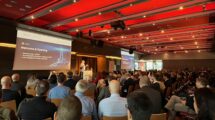This article was originally posted on africabriefing.com
AFRICA is on a mission to become a global powerhouse and gain a share of voice worldwide. The mission is Agenda 2063 – ‘The Africa We Want’.
The African Union (AU) Agenda 2063 is a strategic framework for the socio-economic transformation of the African continent over the next five decades. It aims to accelerate development, promote continental integration, and improve the quality of life for all Africans. In commemoration of the 60th AU Day and looking towards the future, it becomes increasingly clear that research and education networks (RENs) play a vital role in the realisation of this ambition.
This article explores the extant and potential efforts of RENs and how they can be leveraged to realise the ‘Africa We Want’.
One of the critical pillars of the AU Agenda 2063 is the development of a knowledge-based economy driven by science, technology, and innovation. Regional RENs, such as UbuntuNet Alliance, WACREN and ASREN, through the 38 national RENs (NRENs) in Africa, are helping to make this happen by providing high-speed internet connectivity and e-infrastructure to advance knowledge discovery, knowledge use and knowledge sharing among and across researchers and research institutions in Africa and beyond. This scalable, resilient infrastructure, alongside advanced resources, tools and applications, empowers researchers, educators, and students to access available global knowledge resources, enhancing collaboration and facilitating the transfer of expertise essential to drive innovation and economic growth.
Simultaneously, NRENs are helping to address the digital divide in many parts of Africa. By providing high-speed connectivity to even the continent’s most remote regions, these networks enable students and researchers to access educational resources, collaborate with peers and mentors, and conduct research that would have been impossible just a few years ago. This paper on RENs and SDGs throws more light on this, as Agenda 2063 and the SDGs are linked in many ways.
Research networks also enable collaboration among African scientists and institutions, facilitating interdisciplinary research, knowledge sharing, and innovation. By connecting researchers and research institutions across the continent, these networks seek to foster collaborative initiatives that address Africa’s challenges, such as health epidemics, food security, renewable energy, and climate change. The resulting partnerships lead to the development localised solutions tailored to Africa’s unique needs, driving sustainable growth and socio-economic progress. The AfricaConnect programme (now in Phase 3), co-funded by the European Union, seeks to foster the achievement of those mentioned above. Currently, over three million Africans, mainly in the education and research ecosystem, have been impacted by the project. More than 1200 institutions of higher learning have benefitted from the project in diverse ways. This is fast positioning Africa’s youthful population in good stead to achieve the African dream.
Some NRENs across the continent have organised razor-focused technology and innovation training and hackathons to equip beneficiaries to contribute to the digital economy. Such activities by RENs help to meet Aspiration 5 of Agenda 2063 – ‘An Africa whose development is people driven, relying on the potential of the African people…’ NRENs are also helping to evolve a new generation of highly skilled workers with the knowledge and training needed to drive innovation and growth in the digital economy.
RENs provide a platform for e-learning and distance education programs, enabling students in remote areas to access quality education and training opportunities. By connecting African universities, colleges, and schools, these networks enhance knowledge dissemination, empower educators, and contribute to the development of a skilled workforce. Such initiatives are essential for achieving the AU Agenda 2063’s goal of inclusive and quality education for all African citizens. A case in point is the Africa Digital Campus project, implemented by WACREN and its regional partners in Benin and Burkina Faso of West Africa. The project aims to make African education resilient to external shocks like the COVID-19 disruptions.
The AU Agenda 2063 places great emphasis on promoting continental integration and unity. Research and education networks can play a vital role by facilitating collaboration and knowledge exchange among R&E institutions across Africa. By fostering joint research projects, these networks will help to break down barriers, promote cultural understanding, and facilitate the sharing of diverse perspectives. This strengthens regional cooperation, builds social cohesion, and fosters a sense of pan-African identity.
Through their collaborative and solo efforts, RENs have been engaging with policymakers, government bodies, and funding agencies to advocate for increased investment in research and education, improved infrastructure, and favourable policies that promote scientific research, innovation, and technological advancement. Research and education networks can act as influential advocates for policies that support the AU Agenda 2063. For instance, WACREN leverages its relationships with former education ministers, Vice Chancellors, funding bodies and other partners through the NREN Ambassadors Forum to amplify the voices of researchers and educators. This endeavour, coupled with what other RENs are deploying, can shape the policy landscape to align with the aspirations of Agenda 2063.
Despite these benefits, however, many challenges must be addressed if NRENs are to reach their full potential. Some of the most significant is the need for sustainable funding models to support the ongoing development and maintenance of these networks, fair policy environments and competitive telecommunication environments. This is a subject for another day.
As Africa harnesses the power of knowledge and innovation, research and education networks will continue to play a crucial role in driving sustainable development, transforming societies, and shaping a brighter future for the continent pursued under the ideals of Pan-Africanism and the vision of Africa’s Renaissance. Africa, through the mechanism of the AU, must cash in on the inspiring impact of research and education networks. AU must demonstrate more commitment to developing NRENs as a strategic mechanism to meet the goals enshrined in the Continental Education Strategy for Africa (CESA).







